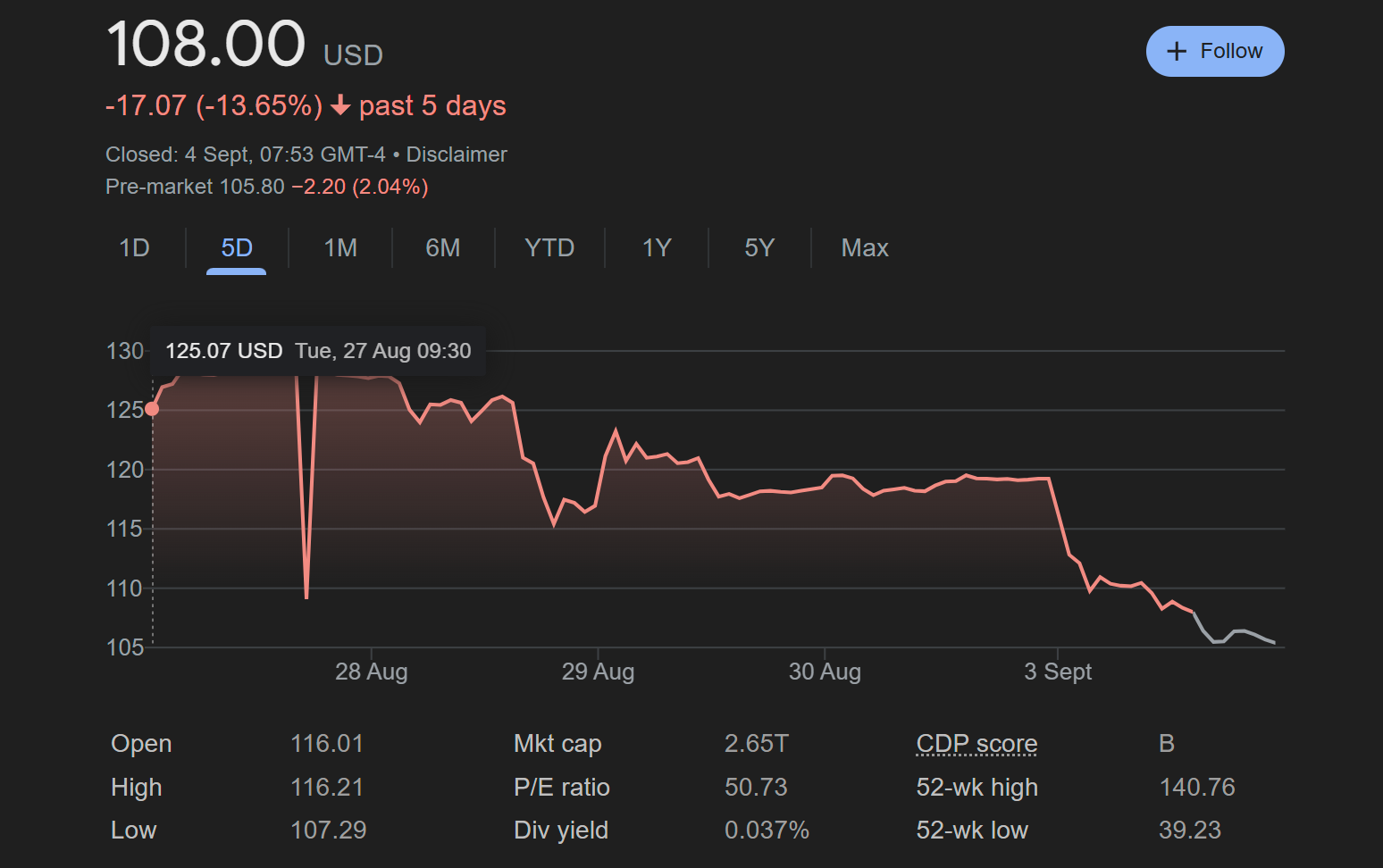Listen for the pop: Nvidia has achieved several records recently, thanks to its dominance of the advanced AI hardware market, but this is one it doesn't want: Team Green just saw around $279 billion wiped off its market cap, the largest one-day drop in US history. Other companies in the tech industry also saw their share prices fall following the publication of weak economic data. The turmoil appears to be an indicator that the AI bubble might be starting to burst.

Nvidia shares crashed more than 9% during regular trading yesterday, the result of weak data on the state of the manufacturing sector from the Institute for Supply Management, which brought concerns about an economic slowdown.
Nvidia's shares fell another 2.4% in post-market trading after Bloomberg reported that the firm had received a subpoena from the Department of Justice as part of an antitrust probe.
Nvidia has now taken Meta's record for the largest one-day fall in market capitalization in US history. Its $279 billion drop dwarfs the $232 billion loss Meta suffered in February 2022.
Nvidia's share price over the previous five days
Tech stocks in general were down yesterday. The Financial Times notes the tech-dominated Nasdaq Composite fell 3.3%, while the Philadelphia Semiconductor index was down 7.8%. Struggling Intel, meanwhile, was down 9%.
The tech stock crash extended outside of the US, as Samsung, SK Hynix, Tokyo Electron, TSMC, ASML, and Softbank all saw their share prices fall.
The generative AI boom has disrupted the tech industry in a way not seen since the advent of the World Wide Web. It's made Nvidia the third most valuable company in the world, and firms are pouring billions into the market and related technologies. But returns aren't matching investments, most consumers are indifferent or even hostile toward anything related to AI, and the number of jobs it is replacing and threatens to replace isn't endearing the technology to the public.
In April, we heard that the slow return on AI investments was starting to spook investors. There was also a report in July revealing that Big Tech needs to generate $600 billion annually to justify AI hardware expenditure, raising questions about future sustainability.
The share price crash, combined with Nvidia's recent quarterly forecast that failed to meet investors' demands for more growth, has lent fuel to the argument that the generative AI business is a bubble that's close to bursting. If or when it does, we could see a market crash comparable to when the dotcom bubble popped in 2000, putting dozens of companies out of business and causing massive layoffs.
Nvidia's record $279 billion loss in market value highlights fears of AI bubble collapse
